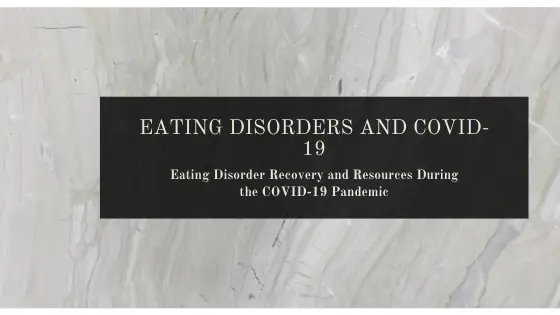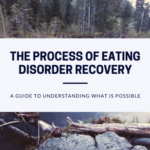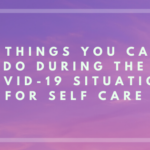The last two weeks, and much longer in some places, have left people around the world reeling. Within days our lives changed in many ways, some obvious and some not immediately noticeable. Under the best of circumstances, eating disorder recovery is difficult. Add in factors that are inherent in the current COVID-19 crisis our nation faces – isolation, high levels of anxiety, sense of loss of control, food scarcity (whether as a result from finances or shortages), altered routine and structure, fear over the well-being of our loved ones, and treatment teams suddenly all on virtual platforms – the process of eating disorder recovery may feel overwhelming and potentially unattainable.

Again, know that you’re not alone. If you’re still working on eating disorder recovery and are struggling, be sure to reach out to your treatment team and loved ones. It’s ok that everything does not feel fine. There is nothing ‘fine’ about the COVID-19 pandemic. If you’ve been in eating disorder recovery for a significant period of time and have ‘graduated’ from therapy, resist the pull to minimize and try to ‘do it on your own.’ Since eating disorders tend to thrive when one is physically and socially isolated, reaching out to trained eating disorder providers is a crucial step. It might feel strange to consult with a therapist or registered dietitian over a virtual platform, but in the long-term it could be the most important thing you do right now. Even if it’s just for a check-in or consult, better to do a check-in rather than waiting after you might have lost ground.
And regardless of where you find yourself on the journey of eating disorder recovery, consider a virtual support group as a way to maintain connection with others. The following are resources for weekly free virtual eating disorder support groups:
Eating Disorder Foundation (Groups offered throughout week for sufferers, as well as one for family members):
https://www.eatingdisorderfoundation.org/get-help/support-groups/
Alsana Weekly Online Meetings:
https://www.alsana.com/free-online-support-group/
Additional resources:
For family members of those struggling with an eating disorder F.E.A.S.T has compiled extensive resources specific to Eating Disorders and COVID-19:
https://www.feast-ed.org/f-e-a-s-t-community-pandemic-support/
Recent blogs on COVID-19 and eating disorders:
Eating Disorder Coalition blog (Strategies to cope with COVID-19)
Alsana blog (Advice for eating with self-compassion during COVID-19)
Eating Recovery blog (Self-care during COVID-19)





